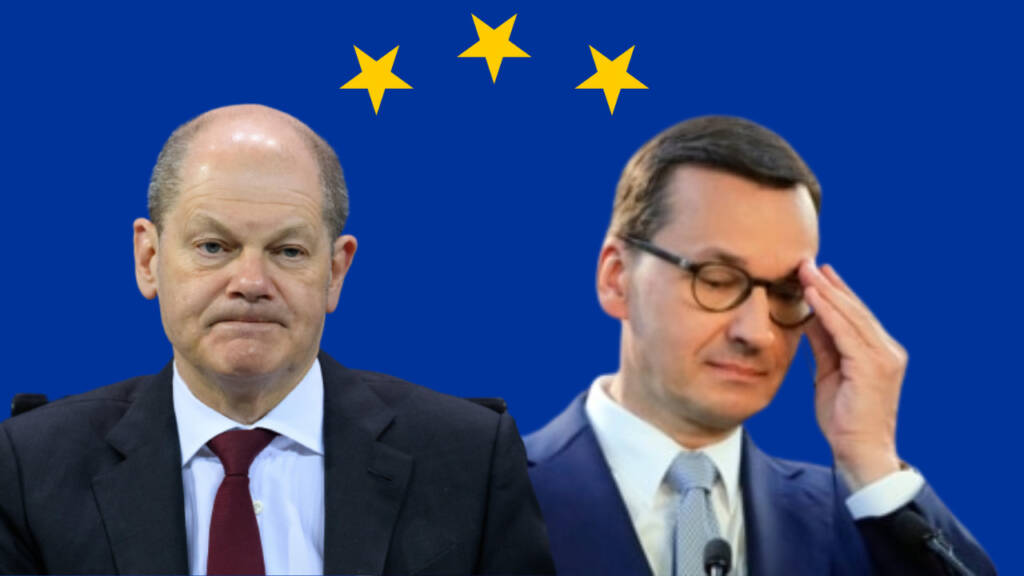The European Union was established in the 1990s on the tenets of closer economic, social, and political ties to promote economic growth in the Eurozone amid sluggish European economies. Since then, the Union has seen red letter days together.
But, in the new geopolitical spectrum, the EU is now falling apart. There is resentment and hostility, as well as a rise in internal conflict. This is all because of Germany’s new gas diktat.
The foundational principle of the European Union has been “United in diversity.” Brussels emphasises that the motto captures how Europeans have come together to strive for peace and prosperity under the auspices of the EU while simultaneously benefiting from the diversity of the continent’s cultures, traditions, and languages.
In difficult times, the Union made a concerted effort to remain unified. For instance, it nearly survived the worldwide economic downturn of 2008. Additionally, it somehow managed to address the 2015 Syrian refugee issue. The EU also managed to survive the 2020 coronavirus pandemic, despite the fact that a few western countries, such as Germany, Italy, and Greece, were seriously affected. Overall, though, the EU could maintain its fundamental ideals of unity despite the challenges it faced. As of now, there was hardly any major pushback among EU members.
But, the Bloc has turned turtle amidst the Ukraine war. Given that the European Union sanctioned Russian gas in response to its invasion of Ukraine, every country in EU is currently scrambling to find an alternative as winter approaches.
In midst of this, Germany is trying to impose its unintelligible decisions on the other EU nations. Under its gas diktats, Germany has introduced a compulsory gas reduction program for all EU members.
The members have been asked to reduce their gas consumption by 15%. Germany thought that the ‘solidarity pact’ would work like a charm for their motive. But, the move has backfired terribly. Nations like Greece and Portugal have already raised alarm against the pact. Furthermore, Poland has now opened a totally new front against Germany.
Won’t give you and won’t allow others, says Poland
As Germany looks to a majority vote for the passage of the gas reduction draft, Poland has ensured that it won’t permit Germany’s fantasy to come true. Poland has expressed its opposition to binding cuts and could exercise its veto power over this decision.
Furthermore, Poland has stressed that it prefers unanimity for such decisions. The Polish PM Matuesz Moraweicki has stated: “We absolutely favour such a vote in this matter – due to the fact that it concerns electricity, the energy mix – being in the mode of so-called unanimity, where Poland has the right to veto. We demand it,” he told private broadcaster Polsat News.
Moreover, he warned the EU that this arm twisting won’t work on Poland at all. He stressed: “If the EU tries to coerce us into voting by a qualified majority, we will protest strongly. If necessary, we will make a formal veto, and then, unfortunately, the attitude to this veto will depend on decisions of the bodies of the European Union.”
Poland has already announced that it has achieved a significant reduction in gas consumption and a discussion about compulsory cuts now is “unnecessary”.
Read More: A migrant war breaks out between Poland and EU
EU’s Unity may fall
You’d be wrong to believe that Poland is the only country that has steadfastly refused to cooperate. Hungary was the first nation to object to the plan, and as time has gone on, more and more countries are beginning to speak out against Germany’s tyranny. Within the bloc, there is discernment that is apparent.
Read More: Small European nations use Ukraine war to take NATO to the cleaners
In every previous crisis, let’s say the Covid pandemic, the EU managed to somehow resume its economic growth without too much difficulty. Although there were significant repercussions and a sense of unease among countries related to the distribution of the Covid recovery fund, the bloc somehow managed to maintain its cohesion and chose a peaceful path to its economic recovery.
But things are definitely different this time. Without gas, there would be no industrial production and also no heat to warm the houses for the upcoming winters.
All things considered, the EU’s people’s life and economy are therefore destined to doom. This is why we say, EU withstood the Coronavirus, but it may not withstand Gas Diktats.
